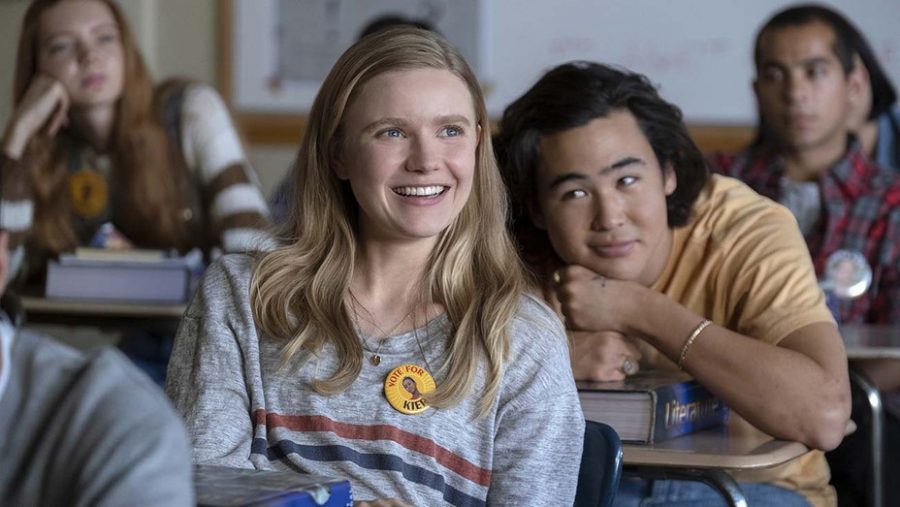Netflix’s ‘Moxie’ is a surprisingly well-executed coming-of-age story
April 8, 2021
Directed by Amy Poehler, “Moxie” was released March 3 on Netflix. Up-and-coming actress Hadley Robinson plays Vivian, the daughter of Poehler, who is inspired to start the titular zine that tackles sexism at her school.
Zines played an instrumental role in the Riot Grrrl movement of the 1990s. The zines spread feminist messages that popularized the subculture. Riot Grrl is rooted in punk and combines it with feminist ideals.
“Moxie” is an attempt to capture female rage, particularly through the lens of teenage girls. The story beats of the film are very familiar to its younger viewers. In high school, girls often feel disregarded by their schools. When a girl comes forward with an instance that makes her feel uncomfortable, they are shunned as if it was nothing but trivial boy and girl things. Victims are patronized into believing they should have been the ones who should have known better.
Often schools ignore problematic behavior, implying that this behavior is excusable. It is a cycle that causes victims to minimize their experiences, knowing there will be no consequences. Vivian decides to publish the zine after witnessing several such instances where the faculty was made aware of the issues and chose to do nothing about them.
Rather than pitting a flimsy boy vs girl narrative, “Moxie” smartly tackles the complexity of the subject matter. The film utilizes framing from third-wave feminism, continuing ideals such as intersectionality. “Moxie” serves as a critique of feminism itself in the modern age and the complexity of female relationships.
None of the characters are perfect and the movie does not excuse their actions. The characters are held accountable instead of the audience. Characters also learn from their mistakes and grow together.
Some critics claim the film should have developed further into the emerging fifth-wave feminism, however, it is difficult to say that “Moxie” was intending to accomplish this with it being a coming–of-age film from Netflix. Arguably it could have been much worse given Netflix’s track record with difficult subject matter or attempts of relatability.
Though “Moxie” is not a revolutionary tale that will spark the forementioned fifth-wave, it sparks the interest of those who have witnessed injustices in their high schools. Mentions of zines from the 90s will leave curious audience members researching the history that the zine is based on and expanding their music taste.









